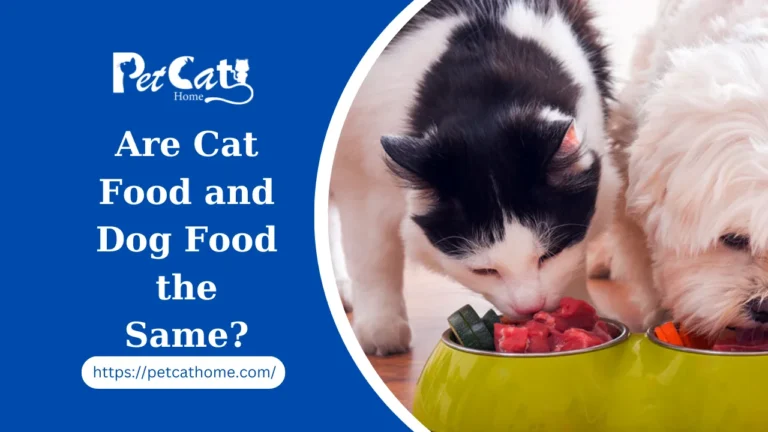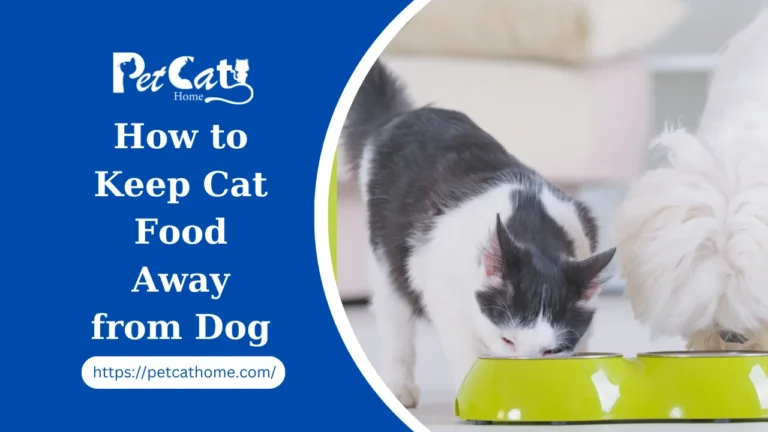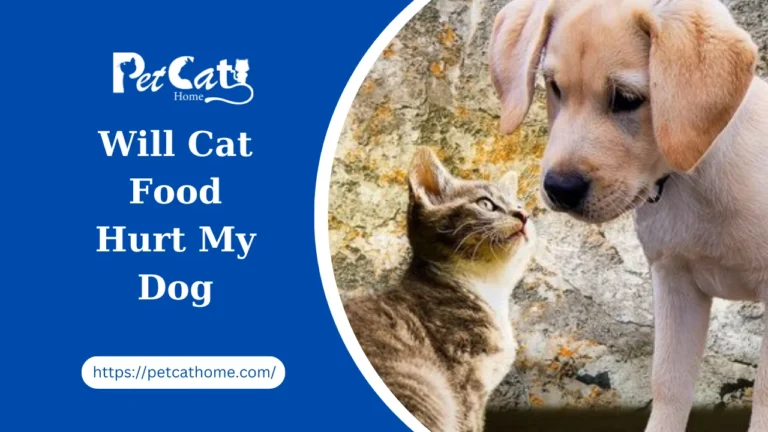Is Kitten Food Good for Senior Cats?
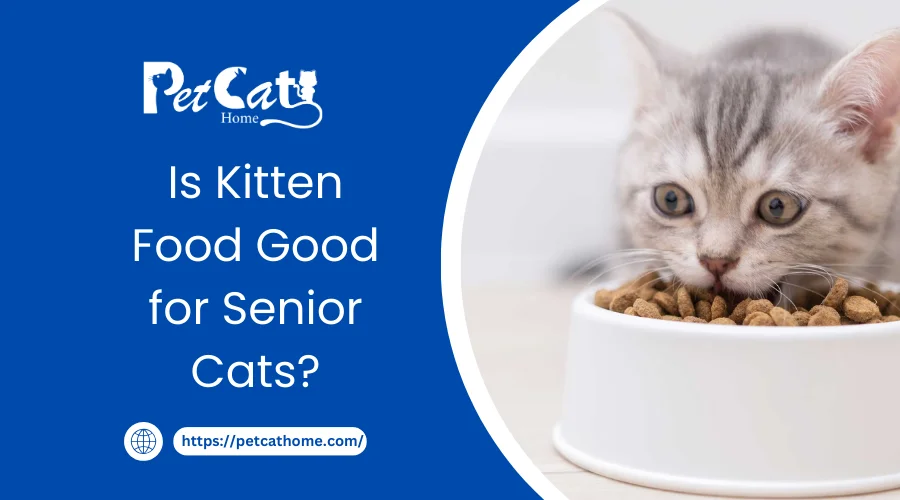
When it comes to giving the greatest nourishment to our beloved senior cats, numerous pet parents wonder, “Is kitten food good for senior animals?” This question originates from the assumption that kitten food may provide greater nutrition or benefits to adult cats. In this detailed guide, we explore the complexities of feline nourishment to answer an often-asked question and provide helpful ideas for cat owners looking for the best food for their senior friends.
Dietary Needs of Senior Cats
Before one can answer the question of whether kitten food is appropriate for elderly cats, we must first understand their specific nutritional needs. Cats’ bodies change as they age, including metabolic changes, decreasing activity levels, and the possibility of tooth decay or kidney disease. These characteristics need dietary modifications to promote overall wellness and health.
Key Nutritional Considerations for Senior Cats
- Protein: Senior cats require an adequate protein intake to maintain muscular mass and aid in tissue healing. As cats get older, the source and digestion of protein become increasingly important.
- Fat: While fat is necessary for cats’ energy, older felines might profit from lower fat content to avoid obesity and improve cardiovascular health.
- Digestibility: elderly cats may have digestive problems or have lower nutrient absorption, emphasizing the significance of highly digestible components in their diet.
- Joint Health: Ingredients like glucosamine and chondroitin can aid elderly cats with arthritis and other age-related illnesses.
Evaluating the Benefits of Kitten Food for Senior Cats
Higher Protein
Kitten food often contains more protein than older cat food, and may appear useful for senior cats that need to maintain muscular mass. However, the quality of proteins and digestibility are important factors in evaluating if kitten food is appropriate for older cats.
Increased Fat
While kittens require more fat for developmental purposes, elderly cats may not metabolize extra fat as well, raising the risk of obesity and other health problems. As a result, the higher fat level in kitten food could fail to satisfy the nutritional requirements of senior cats.
Nutrient Density
Kitten food is designed to supply the nutrition necessary for quick growth and development. Senior cats, on the other hand, may benefit from a diet adapted to their unique needs, with an emphasis on preserving overall wellness and addressing age-related issues such as stiffness in their joints or dental difficulties.
The Diet for Senior Cats

While kitten food may provide some benefits for old cats, it is critical to prioritize their specific nutritional needs. Instead of relying entirely on kitten food, make the following dietary changes to preserve your aging feline companion’s best health and well-being.
- Senior-Specific Formulas: Choose cat food that is specifically designed for senior cats taking into mind their changing nutritional requirements and potential health risks.
- Protein Quality: Select cat food with high-quality, easily absorbed sources of proteins including chicken, turkey, or fish to help with muscle maintenance and overall wellness.
- Joint Support: Look a cat food that contains joint-supporting chemicals such as glucosamine and chondroitin to increase mobility and relieve arthritis or joint stiffness.
- Hydration: Encourage appropriate hydration by feeding wet cat food or providing fresh water at all times, which is especially important for senior cats who are prone to kidney problems.
Is Kitten Food Bad for Senior Cats?
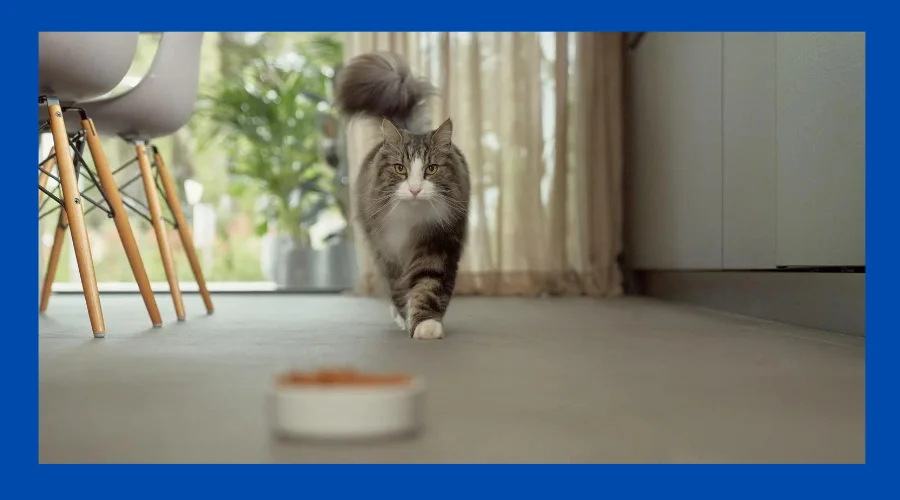
Perhaps you’ve added a new kitten to your family, and your current senior cat is interested by the new basin of kitten food next to their own. Perhaps you’re wondering if you can free-feed the new kitten and your older cat together. Perhaps you are thinking about kitten food for an underweight elderly cat.
Senior Cat Nutritional Needs Versus Kitten Nutritional Needs
Every cat, regardless of age, is an obligate carnivore. This implies their bodies require nutrients that are solely supplied from animal products.
Watch your cat follow a fly or claw on a toy, and you’ll notice that today’s cats evolved from carnivores. And matter young or elderly, the instinct persists. So do their requirements for food. A cat’s diet, like the prey it would devour in the wild, should be high in protein and contain particular amino acids. It should also have higher levels of certain fats/fatty acids and vitamins than omnivores. Carbohydrates, while not necessary, help to save protein.* A cat’s diet should provide substantial levels of protein, lipids, and carbs, as well as other nutrients.
Nutrients include vitamins, minerals, triglycerides, and amino acids.
While this is true for cats on all life stages, the quantity of essential nutrients required varies according to life stage. And with good reason.
In addition to amusing us with feats of extreme cuteness, a kitten’s tiny body has the daunting task of evolving into a fully-fledged cat in its first year.
Fueling growth and maintaining their active lifestyle, as well as preserving their body’s temperature and overall function, necessitates a specialized diet.
Unlike hyperactive, rapidly developing kittens, elderly cats tend to become sluggish and may lose weight. So their nutritional requirements adjust correspondingly.
The Difference Between Kitten and Senior Cat Food
Because cats’ nutritional requirements vary throughout their lives, their diets must adapt to meet those needs. The benefit of life stage nutrition lies in the fact that these diets are designed to give complete and balanced nourishment to cats at various periods of their lives.
Kitten Food
Because kittens use a lot of energy playing, exploring, and growing, they require a food that is specifically designed to give them with extra nutrients.
While all cats require protein along with additional nutrients in their diets, the USA’s Association of Feed Management Officials (AAFCO) recommends at least 7.5 grams of protein per 100 calories (kcals) in kitten chow. In contrast, adult maintenance cat food should have 6.5 grams of protein per 100 calories.
A high-quality kitten food, such as those manufactured by Purina, will include nutrients like DHA for the brain and growth of the eyes in its ingredients. If you’re looking for a meal to assist healthy kitten growth, make sure to For something full and equitable for growth rather than maintenance.
Senior Cat Food
While the purpose of a high-quality kitten food is to fuel activity and promote healthy growth, a full and balanced adult or senior diet is designed to help cats maintain excellent overall body condition and health as they age.
When it comes to the nutrients needed for cat food, AAFCO only considers the development and adult-maintenance life stages. While a senior cat may do well on an adult maintenance diet, a food designed for senior cats can provide benefits such as high protein to maintain muscularity, greater antioxidant support for health, and even specific fibers to aid digestion and healthy GI function.
FAQs
Can I give my elderly cat kitten food?
While you can give older cats and kittens food, it is not always the greatest decision. Senior cats have different dietary requirements than kittens, therefore it’s critical to select a diet specifically designed for older cats.
What are the key differences between kitten and senior cat food?
Kitten food is often higher in protein and fat to assist growth and development, whilst senior cat food is prepared with fewer calories and extra nutrients to maintain the health of older cats.
How can I determine whether my cat belongs to a senior?
Cats are typically considered oldies when they reach eight to ten years old, depending upon the breed and overall condition. Individual kittens may age differently, therefore it is critical to watch their behavior, activity levels, and health changes.
What characteristics should I search for for senior cat food?
When selecting senior cat food, seek for high-quality protein sources, decreased fat content, extra joint-supporting nutrients like glucosamine and chondroitin in, and easily digested components to promote general health and well-being among older cats.
Can I mix kitten and senior cat chow for my aging cat?
Though mixing kitten food with senior cat food may appear to be a smart idea, it’s usually advisable to stay with a diet specifically designed for senior cats to ensure they get the right balance of nutrients for their age and health needs.
How do I convert my elderly cat to a new diet?
When converting the senior cat to a fresh diet, introduce the new food gradually over many days, alternating between increasing and decreasing proportions of the old food. This gradual shift can help your cat avoid intestinal distress and acclimatize to the new diet more quickly.
Are there supplements that I should give my elderly cat?
Depending on your older cat’s individual health needs, your vet may prescribe food supplements that consist of omega-3 fatty acids for joint health, probiotics for digestive health, or minerals and vitamins to promote overall well-being. Always with your veterinarian before introducing supplements to a cat’s diet.
How frequently should I eat my senior cat?
Senior cats may benefit from fewer, more frequently eaten meals over the day to help them retain their energy and avoid weight gain. Individual feeding patterns, however, may differ depending on a cat’s age, activity level, and overall health status, therefore you should check with a veterinarian for personalized feeding suggestions.
What symptoms should I look for in order to make my senior cat’s dietary requirements are met?
Maintaining an acceptable weight, having a lustrous coat, demonstrating good activity levels, and exhibiting normal behavior and appetite are all signs that your older cat’s nutritional needs have been fulfilled. If you detect any changes in your feline friend’s health or behavior, speak with your veterinarian about any dietary deficits or health issues.
Can I prepare homemade cat chow for my elderly cat?
While a few pet parents choose to prepare homemade cat food, it is critical to verify that the diet is well-balanced and covers all of your senior cat’s needs for food. Consult a pet nutritionist to develop a safe and balanced personal diet plan based on your cat’s individual health needs.
Conclusion
While the topic of whether kitten food is appropriate for senior cats can occur, it is critical to prioritize the nutritional needs of these older cats. While kitten food may have some advantages, like higher protein content, customizing the diet to meet the specific needs of senior cats is critical for ensuring general health and well-being throughout their golden years.
